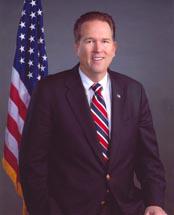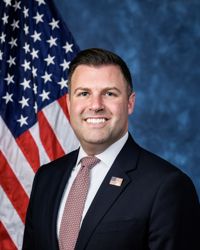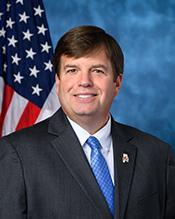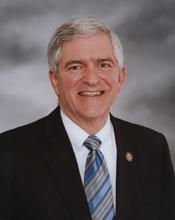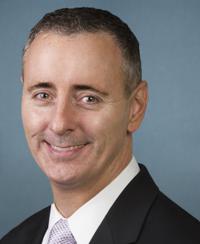0
0
0
Sunshine Protection Act of 2025
1/30/2025, 10:53 AM
Summary of Bill HR 139
Bill 119 HR 139, also known as the Sunshine Protection Act, aims to make daylight savings time permanent across the United States. This means that the clocks would not "fall back" in the fall and "spring forward" in the spring as they currently do. The bill was introduced in the House of Representatives on January 3, 2019 by Representative Vern Buchanan from Florida.
The main purpose of the bill is to provide more daylight in the evenings, which proponents argue can have various benefits such as reducing energy consumption, promoting outdoor activities, and improving public health by reducing the risk of seasonal depression. The bill also aims to reduce the disruption and confusion caused by changing the clocks twice a year.
If passed, the bill would require states that currently observe daylight savings time to continue doing so year-round. States that currently do not observe daylight savings time, such as Arizona and Hawaii, would not be affected by the bill. The bill has received bipartisan support, with proponents arguing that making daylight savings time permanent would have positive effects on the economy, public safety, and overall well-being. However, opponents have raised concerns about potential negative impacts, such as increased energy consumption in the mornings and disruptions to certain industries that rely on the current time change schedule. As of now, the bill is still in the early stages of the legislative process and has not yet been voted on by the full House of Representatives. It remains to be seen whether the Sunshine Protection Act will ultimately become law and make daylight savings time permanent for all Americans.
The main purpose of the bill is to provide more daylight in the evenings, which proponents argue can have various benefits such as reducing energy consumption, promoting outdoor activities, and improving public health by reducing the risk of seasonal depression. The bill also aims to reduce the disruption and confusion caused by changing the clocks twice a year.
If passed, the bill would require states that currently observe daylight savings time to continue doing so year-round. States that currently do not observe daylight savings time, such as Arizona and Hawaii, would not be affected by the bill. The bill has received bipartisan support, with proponents arguing that making daylight savings time permanent would have positive effects on the economy, public safety, and overall well-being. However, opponents have raised concerns about potential negative impacts, such as increased energy consumption in the mornings and disruptions to certain industries that rely on the current time change schedule. As of now, the bill is still in the early stages of the legislative process and has not yet been voted on by the full House of Representatives. It remains to be seen whether the Sunshine Protection Act will ultimately become law and make daylight savings time permanent for all Americans.
Congressional Summary of HR 139
Sunshine Protection Act of 2025
This bill makes daylight saving time the new, permanent standard time.
States with areas exempt from daylight saving time may choose the standard time for those areas.
Read the Full Bill
Current Status of Bill HR 139
Bill HR 139 is currently in the status of Bill Introduced since January 3, 2025. Bill HR 139 was introduced during Congress 119 and was introduced to the House on January 3, 2025. Bill HR 139's most recent activity was Referred to the House Committee on Energy and Commerce. as of January 3, 2025
Bipartisan Support of Bill HR 139
Total Number of Sponsors
6Democrat Sponsors
0Republican Sponsors
6Unaffiliated Sponsors
0Total Number of Cosponsors
4Democrat Cosponsors
0Republican Cosponsors
4Unaffiliated Cosponsors
0Policy Area and Potential Impact of Bill HR 139
Primary Policy Focus
Alternate Title(s) of Bill HR 139
To make daylight savings time permanent, and for other purposes.
To make daylight savings time permanent, and for other purposes.
Comments

Elena Leach
426
10 months ago
I can't believe this new bill is going to mess with my sleep schedule! It's just not fair.
Sponsors and Cosponsors of HR 139
Latest Bills
Providing amounts for the expenses of the Committee on Ethics in the One Hundred Nineteenth Congress.
Bill HRES 131December 12, 2025
Providing for congressional disapproval under chapter 8 of title 5, United States Code, of the rule submitted by the Bureau of Land Management relating to "Central Yukon Record of Decision and Approved Resource Management Plan".
Bill HJRES 106December 12, 2025
Expressing the sense of the House of Representatives in condemning the Government of the People's Republic of China for its harassment and efforts to intimidate American citizens and other individuals on United States soil with the goal of suppressing speech and narratives the People's Republic of China finds unwelcome.
Bill HRES 130December 12, 2025
Providing for congressional disapproval under chapter 8 of title 5, United States Code, of the rule submitted by the Bureau of Land Management relating to "North Dakota Field Office Record of Decision and Approved Resource Management Plan".
Bill HJRES 105December 12, 2025
Providing for congressional disapproval under chapter 8 of title 5, United States Code, of the rule submitted by the Bureau of Land Management relating to "Miles City Field Office Record of Decision and Approved Resource Management Plan Amendment".
Bill HJRES 104December 12, 2025
Providing amounts for the expenses of the Select Committee on the Strategic Competition Between the United States and the Chinese Communist Party in the One Hundred Nineteenth Congress.
Bill HRES 104December 12, 2025
Critical Access for Veterans Care Act
Bill S 1868December 12, 2025
OATH Act of 2025
Bill S 1665December 12, 2025
A bill to extend the authority for modifications to the Second Division Memorial in the District of Columbia.
Bill S 1353December 12, 2025
Saving Our Veterans Lives Act of 2025
Bill S 926December 12, 2025
